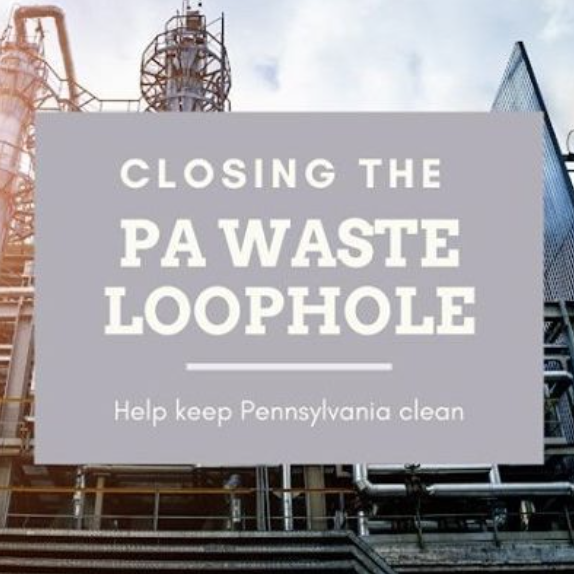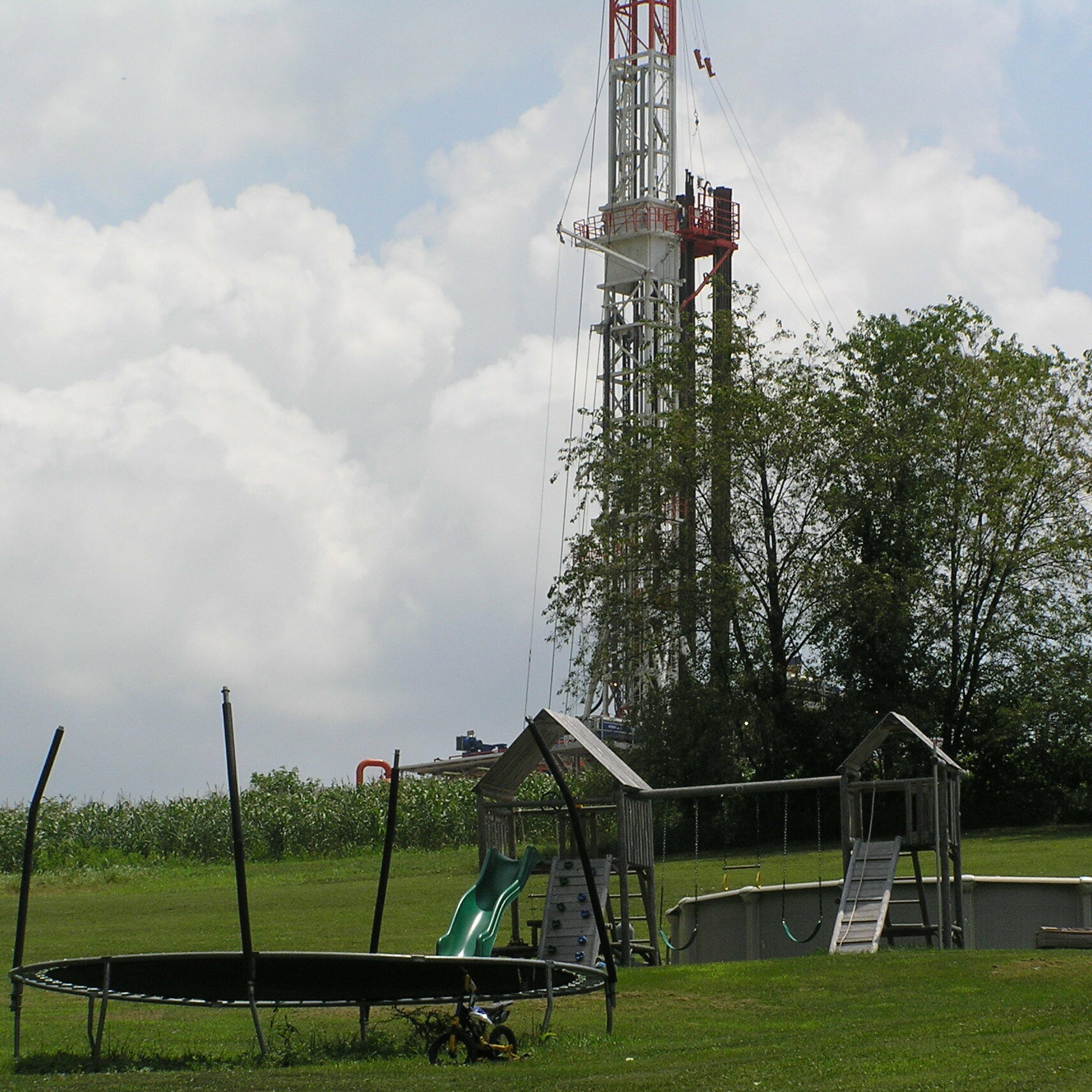Fracking / Petrochemical
Over the last decade, fracking in the oil and gas industry has rapidly expanded, and more recently, there has been a proposed plan to build out petrochemical facilities in the Ohio River Valley. Unfortunately, this petrochemical buildout is largely for the production of single-use plastics! All of these operations are extracting the resources and wealth from our communities and putting our health at risk. We are working to amplify the voices of people impacted by this industry and to advocate for better protections for our water, air, and land.
Many members of our communities are impacted by oil and gas drilling operations via close proximity to well pad operations or general community exposure. We work hard to empower and educate community members on how to mitigate negative health impacts as well as how to navigate their relationship with the company to hold them accountable to keeping our communities safe.
"Growing up and living in Washington County, Pennsylvania has given me a unique opportunity to share with anyone interested a first-hand account of what it is like to live in the most heavily fracked county in our state. Through hearing my story and those of other impacted residents, people can get an idea of what is is like to live in Southwestern Pennsylvania among the shale fields." ~ Lois Bower-Bjornson
Impacts of Fracking / Petrochemicals
Fracking
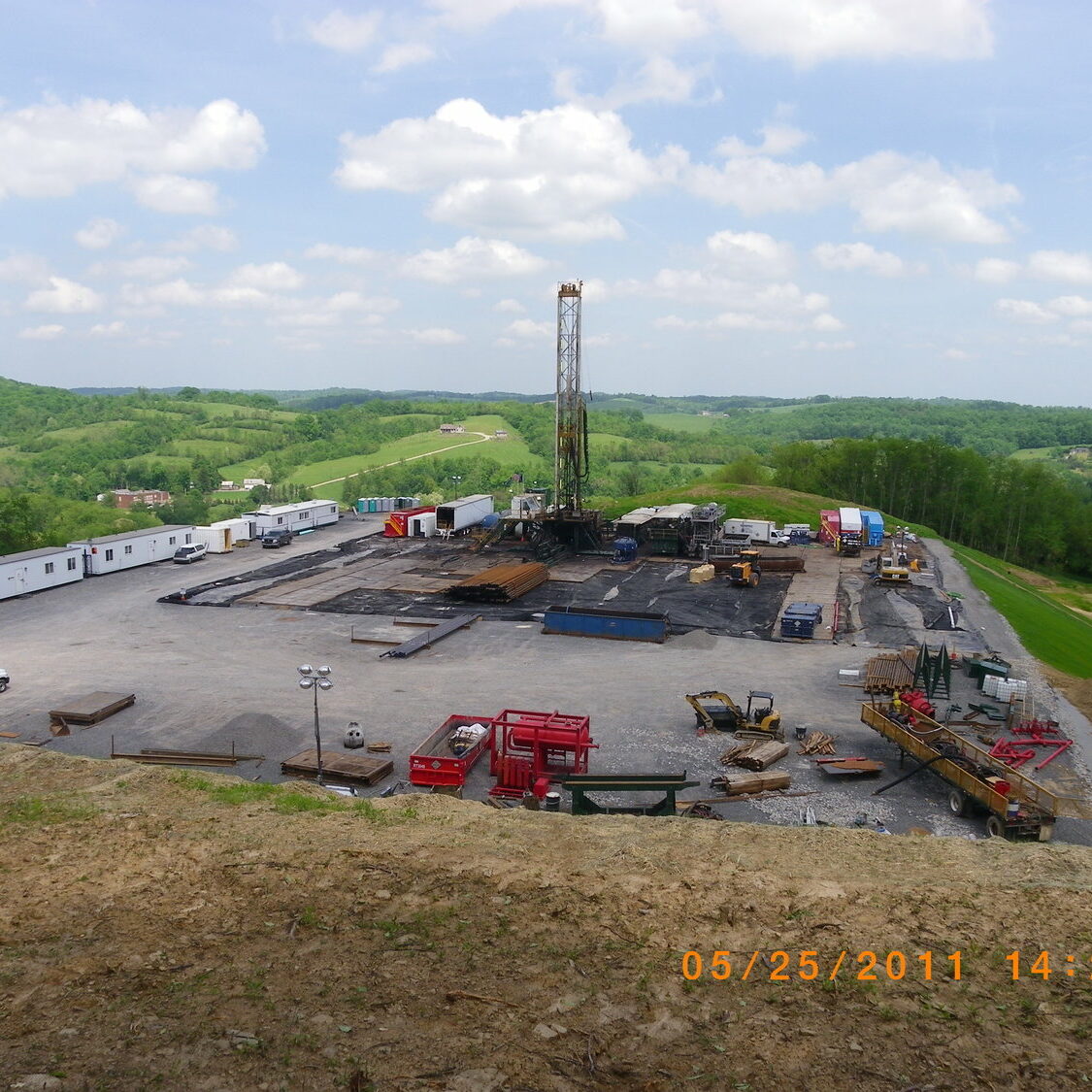
Hydraulic fracturing, also called “fracking,” is a destructive process implemented to extract natural gas and oil from shale rock formations that lie deep underground.
When we use the term "fracking" in this section and throughout the website, we are referring to the whole process of extraction of oil and gas, from the start of excavating the site, to moving the gas to market, and disposal of the waste. It is important to know that when industry uses the words fracking or fracturing, they are referring to one specific process in the extraction oil and gas from the earth.
Waste Disposal
We know that the process of hydraulic fracturing (fracking) shoots a mixture of water, chemicals, and propellants deep into the earth to open up fissures in the shale layer to release gas. It’s not just the gas that comes back up to the surface: drilling fluids and solid materials like drill cuttings are produced alongside the gas when fracking. Handling the waste presents problems.
Pipelines
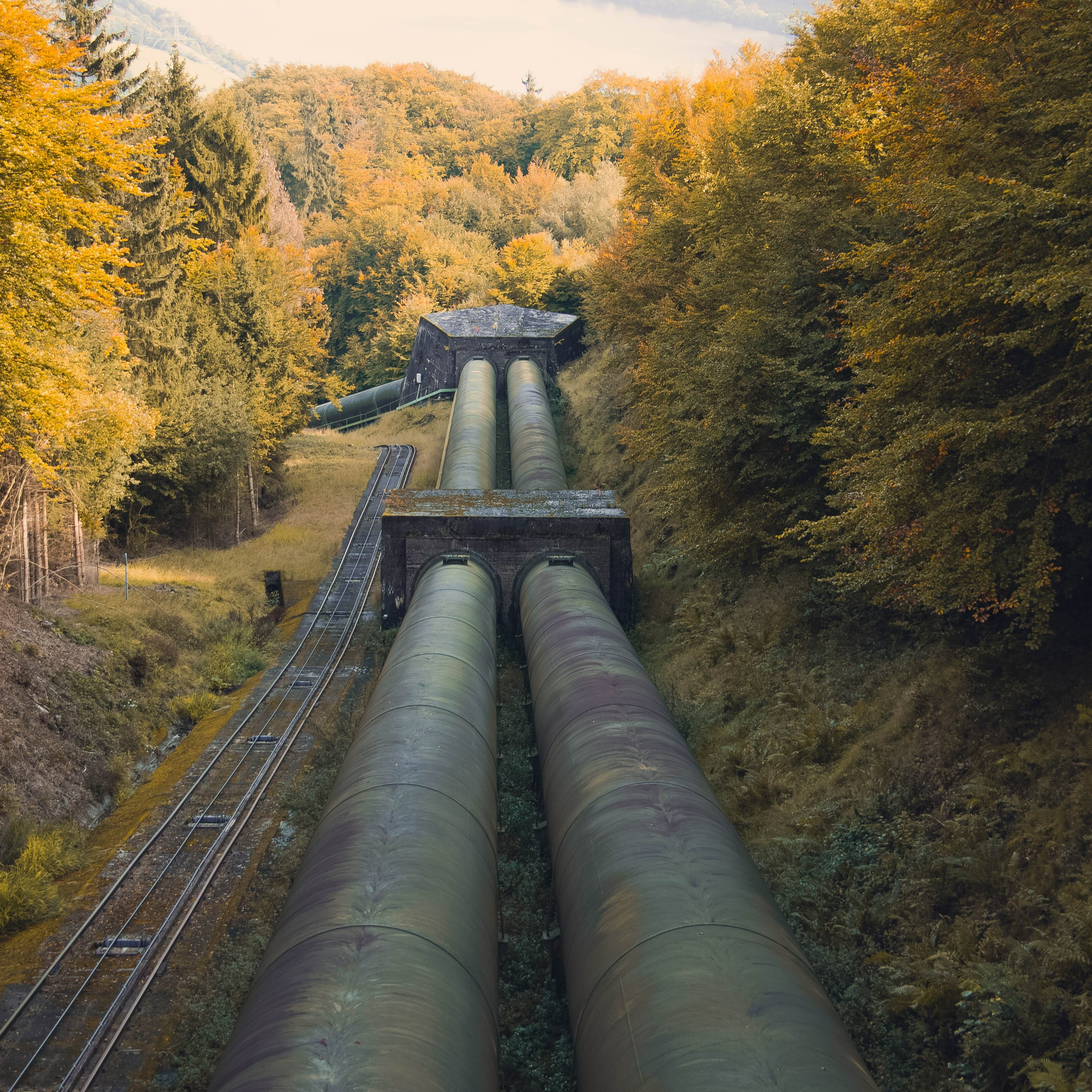
Pipelines are (mostly underground) pipes that carry various fracked gas products throughout the country. People often think of pipelines as the small, lightly-pressurized pipelines that carry processed, odorized gas into their homes. Those lines are called distribution lines; however, there are also gathering lines and transmission lines that are used to transport gas from the wellhead to its ultimate market destination. Gathering lines, transmission lines, and distribution lines all play a different role in the process.
Petrochemical Processing
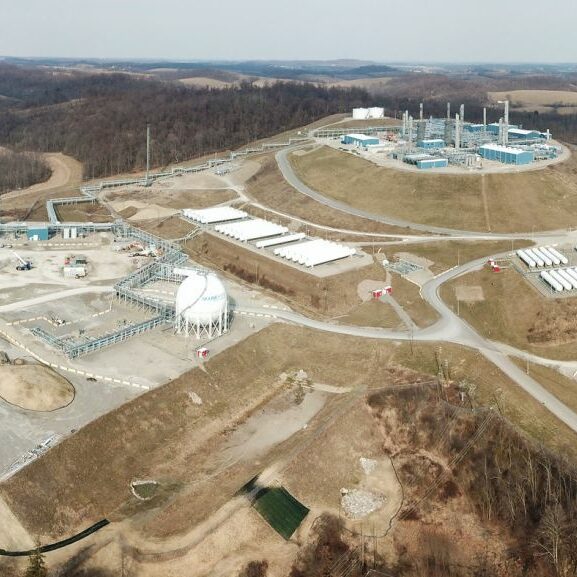
Fracked gas has a number of uses: in 2020, 40% of the fracked gas produced in the country was used in electricity generation; 15% has residential uses. However, renewable energy is taking up a growing portion of the market share - meaning more and more of our energy is coming from renewable sources like solar and wind. In 2020, 33% of the fracked gas in the country was used for the industrial sector - this is the sector that the fossil fuel industry needs to be able to grow if they want to continue to see huge profits. The solution: plastic. Petrochemical processing allows fracked gas, particularly ethane, to be “cracked” into the feedstock of ubiquitous plastic products.
Hydrogen, Pore Space, and Carbon Capture
To learn more, click the button below to view a page of resources on the subject of hydrogen, pore space, and carbon capture.
Public Health
Follow the link below to view studies and research on the connection between fracking, the oil and gas industry, and public health.
Supplementary Resources
To learn more, click below to view a page of supplementary resources on the subject of fracking in the oil and gas industry and petrochemical expansion.
MAD-FACTS (Moms and Dads - Family Awareness of Cancer Threat Spike) is a group of residents and families who are bringing awareness to oil and gas concerns in our communities that affect our health and wellbeing. Whether you are impacted by oil and gas development, or are concerned about health harms and rare cancer cases, we’re here for you.
Our Fracking/Petrochemical Work
All of our campaigns have begun by community members bringing an issue to our attention and working with them to build a strategic plan to stop impacts onto people and the environment.
Closing the oil and gas hazardous waste loophole
The oil and gas industry has a loophole that allows them to avoid testing their waste to determine if it is hazardous, and this waste is disposed of in our landfills and rivers. Our team is working to close this loophole through organizing impacted people in order to advocate for their health to be protected over private profits.
Public Health Accountability
Our region is experiencing an increase in rare childhood cancers and the Department of Health has commissioned a study on the health effects of fracking. Our team of leaders is ensuring the DOH is accountable to the parents whose children are impacted by these cancers.
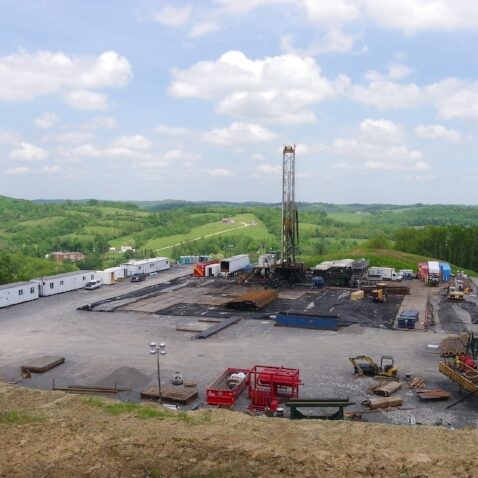
Assisting Residents with impacts from unconventional gas drilling/fracking
Many residents in Washington and Greene County receive little to no notice when a fracking operation will become their neighbor. We work with residents so that they know what their rights are in reference to the regulations and to support them in protecting their homes and water from being harmed.
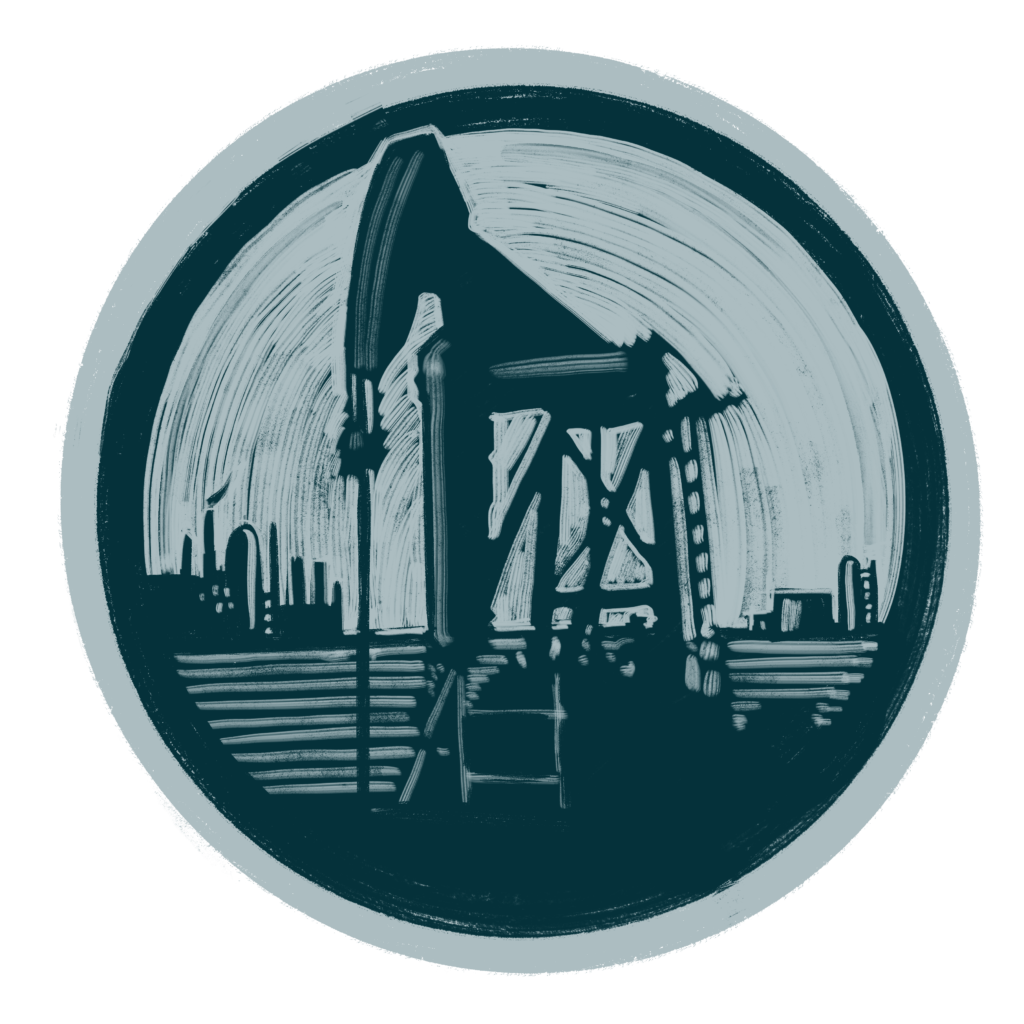
Get CCJ Updates on Fracking / Petrochemical
Sign up for our email list to receive updates on Fracking / Petrochemical issues, ways for you to take action, and alerts for upcoming events. When signing up, you'll be able to select what you want information about, as well as how you like to be contacted. We typically don't send more than 1-2 emails a week and strategically target by geography and topics you are interested in, so you'll only get what is relevant to you. After signing up, you'll receive an email confirmation.


